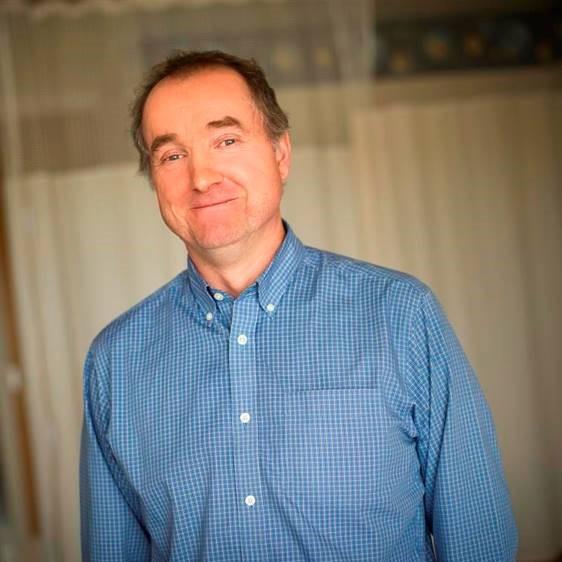Medicinal cannabis can reduce or end seizures in children with severe, drug-resistant epilepsy

Credit: Jim Pattison Children’s Hospital Foundation, Canada
Medicinal cannabis oil containing both cannabidiol (CBD) and a small amount of THC can reduce or end seizures in children with severe, drug-resistant epilepsy, a study by the University of Saskatchewan (USask), Canada has found.
Children with severe epilepsy also experienced improvements in their quality of life after taking low doses of the medicinal cannabis oil, according to research published in Frontiers in Neurology.
The study tested the effects of medicinal cannabis oil with 95 per cent CBD, a chemical which does not create a high, and 5 percent THC, a substance which can be intoxicating in large enough doses.
Studying an evidence-based scientifically guided dosage regimen, the research team found no evidence of THC intoxication when using CBD-enriched whole plant extracts.
“What makes these results really exciting is it opens up as a treatment option for kids who have failed to respond to traditional medications,” said Dr. Richard Huntsman (M.D), a paediatric neurologist who led the study.
Three of the seven children in the USask study–mainly funded by Saskatchewan’s Jim Pattison Children’s Hospital Foundation–stopped having seizures altogether.
“Some of the improvements in quality of life were really dramatic with some of the children having huge improvements in their ability to communicate with their families. Some of these children started to talk or crawl for the first time. They became more interactive with their families and loved ones,” said Dr. Huntsman.
Several studies have shown that cannabis products containing CBD can be effective in helping to control seizures in children with epileptic encephalopathy, a severe form of epilepsy which begins in childhood. Despite this, many children cannot access these products because there is very little guidance for physicians on which doses to use and some health-care providers are concerned about possible intoxication from THC.
This research found that most of the children had a reduction in seizures with a twice daily dose of CBD totaling 5-6 milligrams of cannabis extract per kilogram of weight (mg/kg) per day. By the time a CBD dose of 10-12 mg/kg per day was achieved, all children experienced a reduction in their seizures, most by more than 50 per cent.
“What is really important is that we have been able to dispel in a scientific manner some of the concerns about how to dose these products and the possibility of them causing a ‘high’ in these children. We did this by slowly increasing the dose of cannabis extract in a very tightly regulated manner. We watched the children very closely for side effects and measured blood levels of CBD and THC,” said Dr. Huntsman,
The children had drug-resistant epilepsy, failing to respond to at least two forms of anti-convulsant medication. They had been prescribed several anti-convulsant medications yet continued to have seizures, with one child experiencing 1,223 in the month leading up to the study.
“We are very proud to support this important pediatric research, which is making such a difference in the lives of children who have severe epilepsy,” said Brynn Boback-Lane, President and CEO of Jim Pattison Children’s Hospital Foundation. “This groundbreaking study is giving hope and improved health outcomes. It is heartening to have donors that see the value of such important work.”
Allyssa Sanderson’s eight-year-old son Ben from Prince Albert, Sask. was one of the participants in the study. Ben was born without complications, but later developed infantile spasms. When Ben was two, he was diagnosed with Lennox-Gastaut syndrome, a severe form of epilepsy.
Despite trying multiple medications and treatments, Ben’s seizures were unpredictable. He was seizure-free on some days, but on others had 150 seizures a day.
“Ben was very lethargic and would just lay there and have seizures all day. He wasn’t active and didn’t even want to eat. His eyes looked dull, and he didn’t focus on anything. He really looked lifeless,” Allyssa explained. “I knew this trial was a last resort for my son.”
Once Ben started taking CBD, he began showing improvements in his seizure frequency and then became seizure-free during the study.
“I was seeing the change in Ben every single day. I was thankful as I watched his little personality come out. He was back to his silly self that I hadn’t seen in years. He was stronger. I believe this research is one of the greatest things to happen for kids with epilepsy,” Allyssa said.
###
The research team included neurologists, psychologists and pharmacologists from USask’s Cannabinoid Research Initiative of Saskatchewan.
The study was funded by Jim Pattison Children’s Hospital Foundation, the Saskatchewan Health Research Foundation (SHRF), the Durwood Seafoot Estate and the Savoy Foundation.
Media Contact
Jennifer Thoma
[email protected]
Related Journal Article
http://dx.




